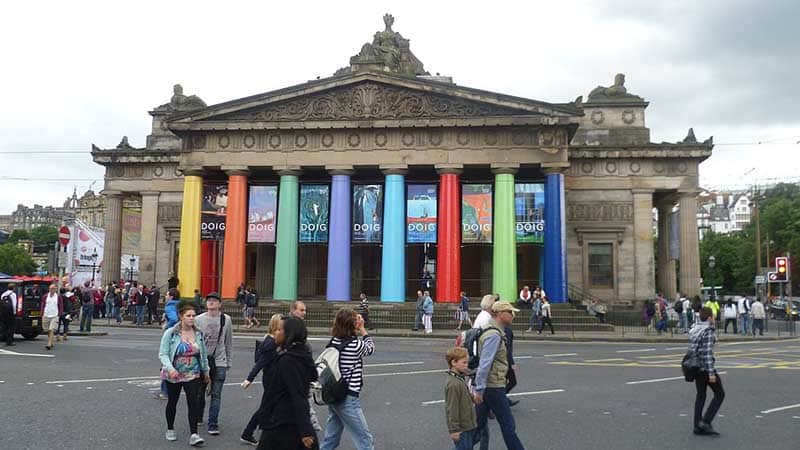As the Edinburgh International Festival gears up for its opening night, it has found itself in controversy due to its recent adoption of a “dynamic pricing” structure for ticketing. The model, which adjusts ticket prices based on demand, has been widely criticized for making it increasingly challenging for fans to attend popular performances, with ticket prices skyrocketing for some events.
Billed by the event organizers as a “flexible pricing model,” the festival is moving prices up or down over time based on the popularity of an event, which mimics the use of the pricing systems for concerts and sporting events. Fans were not pleased, having been used to supporting the event while paying a reasonable (and clear-cut) price for their tickets.
“I bought nine tickets in late April, at a total cost of £341.50,” says “longtime EIF supporter” Kate Calder in a letter to the Edinburgh Music Review. “At that time, the top price ticket for the concert performance of ‘The Magic Flute’ was £64.50 and compared favourably with a top priced seat for the ‘Götterdämmerung’ concert in 2019 at £60.
“A month later when I went to buy more tickets, I realised that prices had increased, and found that my basket of tickets would then cost £489.50. Only my two bottom priced tickets at £21 were the same, while a top-price ticket for ‘The Magic Flute’ was now £89.”
She compared this pricing strategy to those in rail and air travel, not typically seen in classical music concerts and opera houses, making it a new and concerning trend for the EIF.
The EIF defended the move, stating that the dynamic pricing approach enables them to offer concession pricing of up to 50% for those in need while funding free events. Nevertheless, the change has elicited concern among longtime festival supporters, who fear its impact on overall ticket sales and the composition of the audience, with a significant portion—about two-thirds—hailing from Edinburgh, including many pensioners.
Hugh Kerr, the editor of the Edinburgh Music Review, expressed similar apprehensions about the festival’s evolving image. He remarked that EIF might inadvertently earn a reputation as a festival for the wealthy, potentially alienating those who seek accessible cultural experiences.
Responding to the criticism, EIF organizers clarified that “dozens” of arts and cultural organizations are adopting similar flexible pricing technology. They emphasized that this pricing method streamlines the price adjustment process based on demand, adding that they carefully monitor pricing to ensure none exceeds the top prices from the previous year.
Criticism surrounding the practice of “dynamic pricing” has been significant, both in the UK and anywhere else it has been deployed. Artists including Harry Styles, Beyonce, and Bruce Springsteen have taken significant reputational hits from the practice, which often means charging maximum prices for the fans most interested in seeing a performer, because prices are surged during the initial sales period when demand is at its highest.
Then, with huge portions of the venue left unsold due to the high prices and held-back tickets that were never disclosed as being unsold, organizers slowly move tickets throughout the remaining time before a performance, occasionally at steep discounts to avoid half-empty rooms.
In a recent poll, an overwhelming 71% of Britons said they were against the practice of dynamic pricing, but that doesn’t seem to have deterred event organizers from deploying the process just the same.



